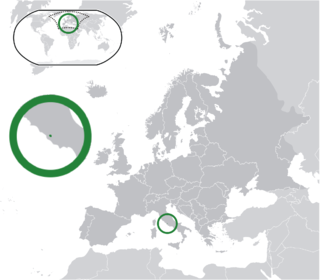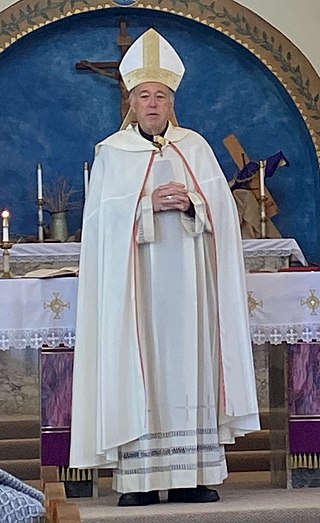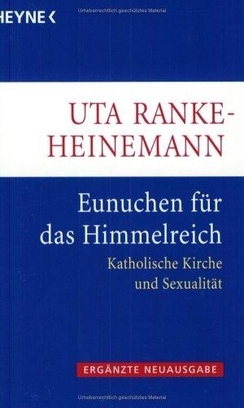Related Research Articles

Raymond Leo Burke is an American prelate of the Catholic Church. A bishop, cardinal, and the incumbent patron of the Sovereign Military Order of Malta, he led the Archdiocese of St. Louis from 2004 to 2008 and the Diocese of La Crosse from 1995 to 2004. From June 2008 to November 2014, he was the prefect of the Supreme Tribunal of the Apostolic Signatura.
Prior to the 20th century, three major branches of Christianity—Catholicism, Orthodoxy and Protestantism—including leading Protestant reformers Martin Luther and John Calvin generally held a critical perspective of birth control. Among Christian denominations today, however, there is a large variety of views regarding birth control that range from the acceptance of birth control to only allowing natural family planning to teaching Quiverfull doctrine, which disallows contraception and holds that Christians should have large families.

Peter Kodwo Appiah Turkson is a Ghanaian prelate and cardinal of the Catholic Church who has served as chancellor of the Pontifical Academies of Sciences since 2022. He was president of the Pontifical Council for Justice and Peace from 2009 to 2017 and the inaugural prefect of the Dicastery for the Promotion of Integral Human Development from 2017 to 2021.

Familiaris consortio is a post-synodal apostolic exhortation written by Pope John Paul II and promulgated on 22 November 1981.
Veritatis splendor is an encyclical by Pope John Paul II. It expresses the position of the Catholic Church regarding fundamentals of the Church's role in moral teaching. The encyclical is one of the most comprehensive and philosophical teachings of moral theology in the Catholic tradition. It was promulgated on 6 August 1993. Cardinal Georges Cottier was influential in drafting the encyclical, as was Servais-Théodore Pinckaers, a professor of moral theology at the University of Fribourg.

Carlo Caffarra was an Italian prelate of the Catholic Church. He was Archbishop of Bologna from 2003 until 2015, when he retired. His previous positions included President of the Pontifical John Paul II Institute for Studies on Marriage and Family from 1981 to 1995 and Archbishop of Ferrara-Comacchio from 1995 to 2003. He was created a Cardinal in the consistory of 24 March 2006 by Pope Benedict XVI.

Courage International, also known as Courage Apostolate and Courage for short, is an approved apostolate of the Catholic Church that counsels "men and women with same-sex attractions in living chaste lives in fellowship, truth and love". Based on a treatment model for drug and alcohol addictions used in programs like Alcoholics Anonymous (AA), Courage runs a peer support program aimed at helping gay people remain abstinent from same-sex sexual activity.

The legal code regarding LGBT rights in Vatican City is based on the Italian Zanardelli Code of 1889, which was applicable in 1929, the time of the founding of the sovereign state of the Vatican City. From 1929 to 2008, the Vatican City automatically adopted most Italian laws; however, it was announced in late 2008 that Vatican City would no longer automatically adopt new Italian laws as its own.

The Catholic Church opposes same-sex sexual activity and same-sex marriage. While the Church says it opposes "unjust" discrimination against homosexual persons, it supports what it considers "just" discrimination in the employment of teachers or athletic coaches, in adoption, in the military and in housing. The Catechism of the Catholic Church promulgated by Pope John Paul II considers sexual activity between members of the same sex to be a mortal sin against chastity. It sees homosexual orientation as objectively disordered. This teaching has developed through a number of ecumenical councils and the influence of theologians, including the Church Fathers.

Catholic theology of sexuality, like Catholic theology in general, is drawn from natural law, canonical scripture, divine revelation, and sacred tradition, as interpreted authoritatively by the magisterium of the Catholic Church. Sexual morality evaluates sexual behavior according to standards laid out by Catholic moral theology, and often provides general principles by which Catholics can evaluate whether specific actions meet these standards.
The Catholic Church is a major provider of medical care to HIV/AIDS patients. Much of its work takes place in developing countries, although it has also had a presence in the global north. Its opposition to condoms, despite their effectiveness in preventing the spread of HIV, has invited criticism from public health officials and anti-AIDS activists.

Robert Walter McElroy is an American prelate of the Catholic Church who has served as the sixth bishop of the Diocese of San Diego in California since 2015.
In the Catholic Church, the Synod of Bishops, considered as an advisory body for the pope, is one of the ways in which the bishops render cooperative assistance to him in exercising his office. It is described in the 1983 Code of Canon Law as "a group of bishops who have been chosen from different regions of the world and meet at fixed times to foster closer unity between the Roman Pontiff and bishops, to assist the Roman Pontiff with their counsel in the preservation and growth of faith and morals and in the observance and strengthening of ecclesiastical discipline, and to consider questions pertaining to the activity of the Church in the world."

The Third Extraordinary General Assembly of the Synod of Bishops, the first of two synods popularly referred to as the Synod on the Family, was held in Vatican City on 5–19 October 2014 on the topic of Pastoral Challenges of the Family in the Context of Evangelization. The Synod was a gathering of 253 bishops and other participants in preparation for a larger synod with the same theme in October 2015. The participants discussed problems facing the family today, including the effects of war, immigration, domestic violence, sexual orientation, polygamy, inter-religious marriages, cohabitation, the breakdown of marriage, and divorce and remarriage. In particular, the synod was marked by debate regarding the pastoral care of Catholics living in "irregular unions", including those civilly remarried after divorce, unmarried cohabitating couples, and especially gay Catholics. The synod was also noted for a new prominence of African bishops.

The Fourteenth Ordinary General Assembly of the Synod of Bishops, popularly referred to as the Synod on the Family, took place from 4 to 25 October 2015 with the theme of "the vocation and mission of the family in the Church and in the contemporary world." It was "reflect[ing] further on the points discussed" at the 2014 Third Extraordinary General Assembly of the Synod of Bishops "so as to formulate appropriate pastoral guidelines" for the pastoral care of the person and the family. The 2014 assembly of the synod, called to define the status quaestionis and to collect the participants' experiences and proposals, can be understood as a preparation for the 2015 assembly, but they are meant to "form a single organic unity." It took place in the Synod Hall in the Paul VI Audience Hall in Vatican City.

Eunuchs for the Kingdom of Heaven – The Catholic Church and Sexuality is a philosophical book by the German theologian Uta Ranke-Heinemann, first published in 1988 and translated in 1990. The book is about how sexual morality is governed by celibates in the Catholic Church, which she criticizes as misogynous. While this work represents a late 20th century view, and remains broadly relevant, in some areas material has become dated, as Pope Francis began to address some of the issues raised in this work in the early 21st century.

Amoris laetitia is a post-synodal apostolic exhortation by Pope Francis addressing the pastoral care of families. Dated 19 March 2016, it was released on 8 April 2016. It follows the Synods on the Family held in 2014 and 2015.

Mario Grech is a Maltese prelate who was Bishop of Gozo from 2005 to 2019. He was Pro-Secretary General of the Synod of Bishops from October 2019 until he became Secretary General in September 2020.

Pastoral care for gay Catholics consists of the ministry and outreach the Catholic Church provides to LGBT Catholics.

Dissent from the Catholic Church's teaching on homosexuality has come in a number of practical and ministerial arguments from both the clergy and the laity of the Catholic Church. The Catholic Church teaches that while being gay is not a sin in and of itself, any sex outside of marriage, including between same-sex partners, is sinful, and therefore being gay makes one inclined towards this particular sin.
References
- 1 2 3 4 5 6 Akin, Jimmy (13 October 2014). "The Law of Gradualness: 12 things to know and share". National Catholic Register. Retrieved 2014-10-30.
- 1 2 3 4 5 6 7 8 Allen Jr., John L. (October 8, 2014). "The synod's key twist: The sudden return of gradualism". Crux. Retrieved 2014-10-22.
- 1 2 3 Lucie-Smith, Alexander (9 October 2014). "Confused by the synod? Remember, love is the fulfilment of the Law". Catholic Herald. Retrieved 2014-11-01.
- 1 2 3 "Vademecum for confessors concerning some aspects of the morality of conjugal life". Pastoral Council for the Family. February 12, 1997. Retrieved 2014-11-02.
- 1 2 3 4 Pope John Paul II (November 22, 1981). "Familiaris consortio" . Retrieved 2014-10-31.
- ↑ "Father Fessio explains Cardinal Schönborn's remarks on homosexuality". Catholic Culture. 12 May 2012. Retrieved 2014-10-30.
- 1 2 3 4 5 Grabowski, John S. (October 29, 2014). "The law of gradualism: A process toward God". Our Sunday Visitor. Retrieved 2014-11-01.
- 1 2 Richard M. Hogan and John M. LeVoir, "John Paul II on Love" in Charles E. Curran, Julie Hanlon Rubio (editors), Marriage (Paulist Press 2009 ISBN 978-0-80914575-1), p. 90
- ↑ Kiely, Bartholomew. "The Pastoral Care of Homosexual Persons: A Psychological Note" . Retrieved 2014-11-02.
- 1 2 3 Smith, Janet (November 21, 2010). "Pope Benedict, Condoms, and the Light of the World". Zenit. Retrieved 2014-11-01.
- ↑ Bartholomew M. Kiely, "The Impracticality of Proportionalism" in Gregorianum, vol. 87, issue 4, p. 684 ( ISSN 0017-4114)